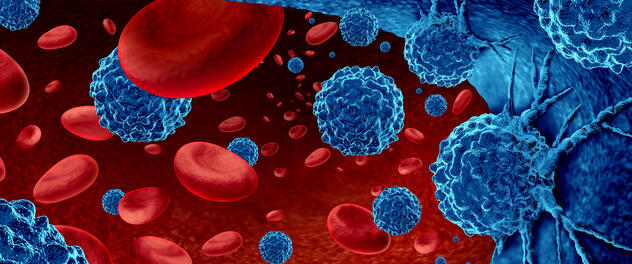 Bridging science and care
Bridging science and care
Dr. Kirschner's lab translates detailed cellular and population studies into clinical applications that can improve care for cancer and age-related conditions.
Overview
The Stem Cell Aging and Cancer Laboratory led by principal investigator Kristina Kirschner, Ph.D., studies the relationship between age-related physiological, genetic and molecular changes and blood cancers.
The team's goal is to improve outcomes by developing innovative strategies to prevent or delay age-related conditions and creating tools to estimate blood cancer risk.
Dr. Kirschner's research team uses a multidisciplinary, translational approach that combines cohort-level population studies with single-cell multiomics and mathematical modeling.
The team applies a wide range of molecular, cellular and biochemical techniques. They implement state-of-the-art in vitro cell culture systems and advanced in vivo work using human samples, innovative cell lines and animal models. Using genomics, proteomics and cellular biology approaches, the Kirschner lab aims to clarify the mechanisms that drive age-related blood cancer development.
Research focus areas
- Elucidating mechanism of disease progression in the context of clonal hemopoiesis.
- Mapping cell intrinsic and cell extrinsic mechanisms that lead to transformation of aged hematopoietic stem and progenitor cells into blood cancer stem cells by applying advanced in vitro cell culture systems with in vivo work.
- Exploring the role of senescence in the tumor microenvironment to better understand the contribution of the aging microenvironment to transformation events using state-of-the-art model systems.
- Reversing age-related changes in the hematopoietic compartment to reduce the risk of blood cancers in older adults by combining single-cell multiomics with assessment of human blood samples.